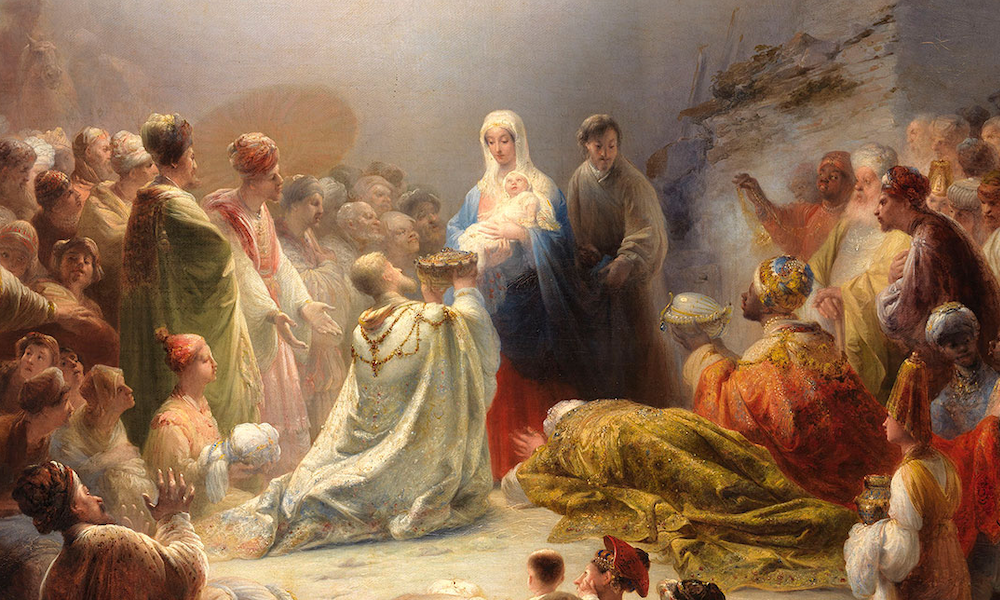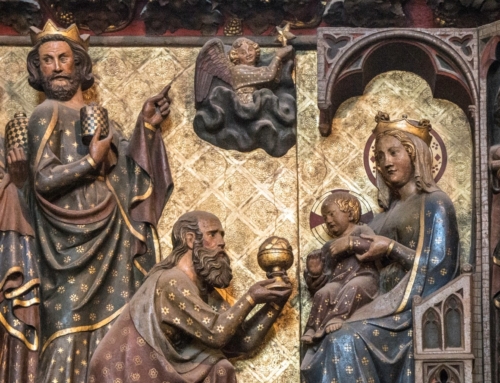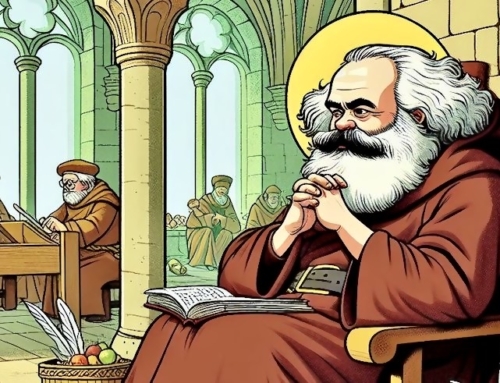Lectio Divina: A Meditation on the Gospel for Sunday
With the Gospel reading from the upcoming Sunday Mass as its principal source-text, each Lectio Divina (“Sacred Reading”) essay offers a prayerful meditation of the Sacred Scriptures—one which draws from the wealth of biblical literature, as well as the prayer life of the individual author.
This Sunday’s Gospel is a familiar one. The Lord Jesus says that when the Son of Man comes in glory, “the nations will be assembled before him. And he will separate them one from another, as a shepherd separates the sheep from the goats” (Matt 25:32). What image comes to mind when we hear this passage? It can be easy for us to see a ruler far distant from his subjects, a judge overly eager to condemn, a warrior full of vengeance. Before we commit to a certain image, however, we should ask, “Who is Christ the king?”
Two other passages in Matthew can shed light on what it means here for Christ to be king. The first of these passages is at the beginning of the Gospel. The magi come to Bethlehem and ask, “Where is the newborn king?” (Matt 2:2a). They find the king they seek: the newborn Christ, a child too weak to lift his own head. Scripture couldn’t paint a more remarkable scene when it says that the magi “prostrated themselves and did him homage. Then they opened their treasures and offered him gifts” (Matt 2:11).
The second scene—just as striking—is portrayed in Matthew’s passion narrative. Matthew is the only evangelist to report that, during the mocking, the Lord was not only given a crown of thorns, but also received “a reed in his right hand” (Matt 27:29). The lord of heaven is mockingly crowned with thorns, and holds, not a golden scepter, but a reed as a symbol of his lordship.
In these two passages, the Gospel portrays a king, but each picture is something of a paradox: a newborn infant receives worship and tribute from distant powers, and the lord of glory is punished and mocked by his own creatures. To these images we can add our Gospel for Sunday; Christ sits “upon a glorious throne,” and yet he behaves “as a shepherd” (Matt 25:31–32). Christ’s heart is moved with pity, because he sees that the people are “troubled and abandoned, like sheep without a shepherd” (Matt 9:36). Christ has come to fill this role. Just as he comes as an actual child for us, just as he suffers an actual passion for us, so too the Lord Jesus is an actual shepherd for us.
In each portrayal of kingship, we come to see more closely what kind of king the Lord Jesus is. He’s not the distant ruler. Rather, he’s born to live among us as a carpenter’s son. He’s not the overly eager judge. Rather, he’s a shepherd watching with love the troubled sheep. He’s not the vengeful warrior. Rather, he willingly suffers to offer his own life to us.
These mysteries of Christ’s kingship should inspire in us, not fear of judgement, but rather trust and peace. Sunday’s Psalm gives us the right spirit; “the Lord is my shepherd; there is nothing I lack” (Ps 23:1). As we celebrate Christ the King, let’s ask the Lord to ever create in us this spirit.
✠
Image: Domingos Sequeira, A Adoração dos Magos







